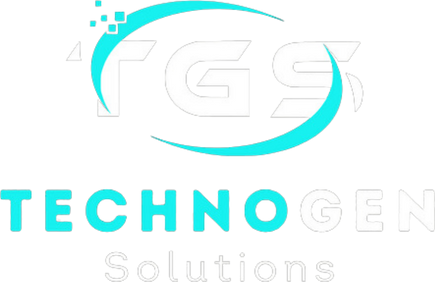In today’s competitive digital landscape, search engine optimization (SEO) plays a critical role in ensuring that your website stands out from the crowd. Whether you are running a small business or a large enterprise, utilizing effective Top SEO strategies is key to ranking higher on search engines like Google, driving organic traffic, and increasing visibility. For businesses like Techno Gen Solutions, mastering SEO means staying ahead of the competition.
Why SEO Strategies is Essential for Business Success
The digital world is driven by content, and search engines are constantly evolving to deliver the most relevant results to users. By optimizing your website, you increase its visibility on search engine results pages (SERPs), which in turn attracts more potential customers. SEO Strategies is not just about getting traffic; it’s about getting the right kind of traffic that converts into sales.
Keyword Research: The Foundation of Successful SEO Strategies
The first step in any effective SEO strategy is identifying the right keywords. Keyword research allows you to understand what terms your target audience is searching for. This process involves tools like Google Keyword Planner, SEMrush, or Ahrefs to uncover keywords with high search volumes but manageable competition.
- Long-tail keywords: These are specific phrases that users search for. They usually consist of three or more words and have lower competition, making them ideal for niche businesses like Techno Gen Solutions. For example, “best digital marketing services in Dubai” is a long-tail keyword that could be highly effective.
- LSI (Latent Semantic Indexing) keywords: Incorporate LSI keywords that are contextually related to your primary keyword. For example, if your main keyword is “SEO services,” LSI keywords could be “search engine optimization,” “website ranking,” or “Google SEO tips.”
On-Page SEO: Optimizing Your Website’s Content
On-page SEO focuses on optimizing individual web pages to rank higher and attract more relevant traffic. This involves several key elements:
Title Tags and Meta Descriptions
Each page should have a unique and descriptive title tag that includes your primary keyword. Title tags help search engines understand the page’s content and display it properly on SERPs.
- Title tags: Ensure your title tags are no longer than 60 characters and include your primary keyword as early as possible.
- Meta descriptions: Although they do not directly impact rankings, they improve click-through rates (CTR). Ensure your meta descriptions are engaging, and persuasive, and include your primary keywords.
Header Tags (H1, H2, H3)
Use header tags to structure your content effectively. The H1 tag should contain your main keyword, while H2 and H3 tags help break down the content into readable sections, making it easier for search engines to understand the hierarchy and importance of the information.
Image Optimization
Optimize all images by including descriptive alt text that contains keywords. Additionally, compress images to reduce load times, as page speed is a critical ranking factor.
Content Creation: The Backbone of SEO
Content is king when it comes to SEO. Search engines reward websites that consistently produce high-quality, relevant, and engaging content. Here are key elements to focus on:
- Regular blog posts: Consistently publishing valuable blog posts keeps your site fresh and relevant. Consider writing long-form articles (over 1,000 words) that thoroughly cover topics in your industry.
- Keyword placement: While creating content, strategically place your primary and secondary keywords throughout the text. However, avoid keyword stuffing, which can harm your rankings.
- Internal linking: Include internal links to other relevant pages on your website. This helps search engines crawl your site and keeps users engaged for longer periods.
- External linking: Linking to reputable external websites adds credibility to your content, helping boost your site’s authority.
Mobile Optimization: A Must for SEO in 2024
With more users accessing websites from mobile devices, mobile optimization has become an essential aspect of any SEO strategy. Google prioritizes mobile-first indexing, meaning that it primarily uses the mobile version of your site for indexing and ranking.
- Responsive design: Ensure your website has a responsive design that adapts to different screen sizes.
- Page speed: Optimize your website’s load time on mobile devices. Tools like Google PageSpeed Insights can help identify areas for improvement.
Off-Page SEO: Building Authority with Backlinks
While on-page SEO focuses on optimizing your website itself, off-page SEO involves external factors that help build your site’s authority and credibility. The most effective off-page SEO tactic is link building.
Backlinking Strategy
Backlinks are links from other websites to your site. Google views backlinks as votes of confidence, and websites with high-quality backlinks tend to rank higher on SERPs. Here are some tips for building backlinks:
- Guest posting: Write guest posts for authoritative websites in your industry and include a link back to your site.
- Influencer marketing: Collaborate with industry influencers who can link to your website from their blogs or social media.
- Broken link building: Find broken links on other websites and offer your content as a replacement.
Local SEO: Optimizing for Local Searches
For businesses like Techno Gen Solutions that cater to a local audience, local SEO is vital. Local SEO focuses on optimizing your online presence for local searches like “digital marketing services near me.”
Google My Business (GMB)
One of the most effective ways to improve your local SEO is by optimizing your Google My Business profile. Ensure your profile is complete, with accurate business information, high-quality images, and consistent updates.
- NAP consistency: Your business’s name, address, and phone number (NAP) should be consistent across your website and all online directories.
- Local citations: Get your business listed in local directories like Yelp, Yellow Pages, and other industry-specific platforms.
Technical SEO: Ensuring Your Website’s Performance
Technical SEO focuses on improving your website’s backend structure to enhance its performance and make it easier for search engines to crawl and index your site.
XML Sitemap and Robots.txt
Submit an XML sitemap to Google to help search engines understand the structure of your site. Use the robots.txt file to control which pages search engines can and cannot crawl.
Secure Your Website with HTTPS
Switching your site to HTTPS not only improves security but is also a ranking signal for Google. Websites with SSL certificates tend to rank higher and are trusted more by users.
Core Web Vitals
Google’s Core Web Vitals metrics focus on user experience, and they are now key ranking factors. These include:
- Largest Contentful Paint (LCP): Measures how quickly the largest content element becomes visible.
- First Input Delay (FID): Measures how fast a website responds to user interactions.
- Cumulative Layout Shift (CLS): Ensures that visual elements on the page do not shift unexpectedly.
Measuring Success: SEO Tools and Analytics
To understand how well your SEO efforts are performing, it’s crucial to track and measure key metrics using tools like Google Analytics, Google Search Console, and other SEO platforms like Ahrefs or Moz.
- Organic traffic: Monitor the growth of organic traffic over time to see if your strategies are working.
- Keyword rankings: Track how your target keywords are ranking on search engines.
- Bounce rate and session duration: These metrics help you understand how users interact with your site and if your content is engaging enough to keep them on the page.



Leave A Comment